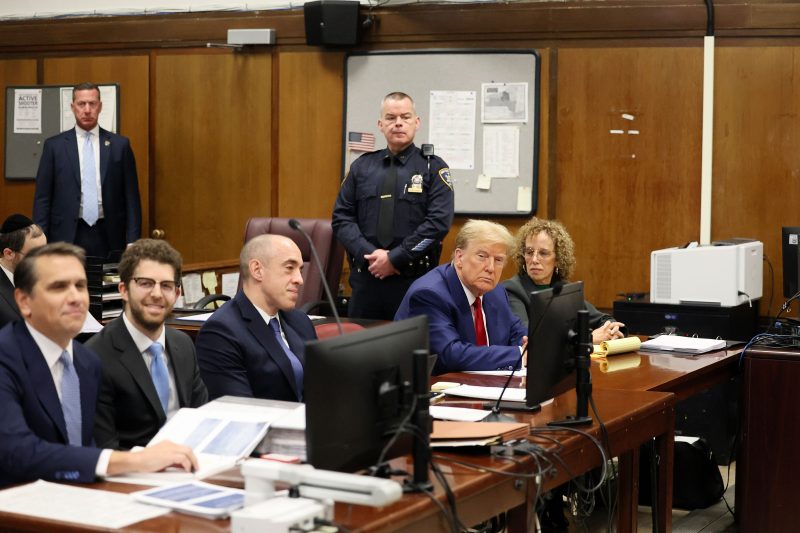In recent times, the United States’ political landscape has witnessed significant upheavals, leading to discussions and debates around the eligibility of certain individuals to hold key positions of power. One such controversial topic revolves around the potential candidacy and subsequent election of an individual who may be embroiled in legal troubles or even convicted of a crime. The latest focal point of this discourse is the possibility of former President Donald Trump securing the GOP nomination for the upcoming presidential race despite facing legal challenges.
The United States Constitution lays down specific requirements and qualifications for individuals seeking to hold high office in the country. Although there are no explicit provisions barring a convicted individual from running for President, the legal implications and potential consequences of such a scenario have sparked widespread debate and speculation.
Trump’s tumultuous presidency, marked by controversies and investigations, has raised concerns regarding his ability to lead effectively and impartially. His impeachment, two unsuccessful bids for re-election, and ongoing legal battles have further fueled doubts about his suitability for public office.
Critics argue that allowing a convicted individual to serve as President sets a dangerous precedent and undermines the integrity of the highest office in the nation. They point to the importance of upholding the rule of law and ethical standards in governance, emphasizing the need for leaders who respect and adhere to legal norms.
Proponents of Trump’s potential candidacy, on the other hand, highlight his significant support base, populist appeal, and commitment to addressing key issues facing the country. They argue that his experience as a businessman and political outsider positions him as a viable candidate capable of challenging the status quo and enacting much-needed reforms.
The legal complexities surrounding a convicted individual assuming the presidency remain a point of contention among legal experts and scholars. While the Constitution does not explicitly address the issue, interpretations vary widely, with some arguing for a strict adherence to legal standards, while others advocate for a more flexible approach that considers broader political implications.
In conclusion, the prospect of a convicted individual, such as Donald Trump, securing the GOP nomination and potentially serving as President raises fundamental questions about the intersection of legality, morality, and public trust in governance. The ongoing debates and controversies surrounding this issue underscore the importance of upholding democratic principles, ethical leadership, and the rule of law in the American political landscape. As the nation navigates these challenging waters, it remains to be seen how these fundamental principles will shape the future of its political institutions and leadership.



























